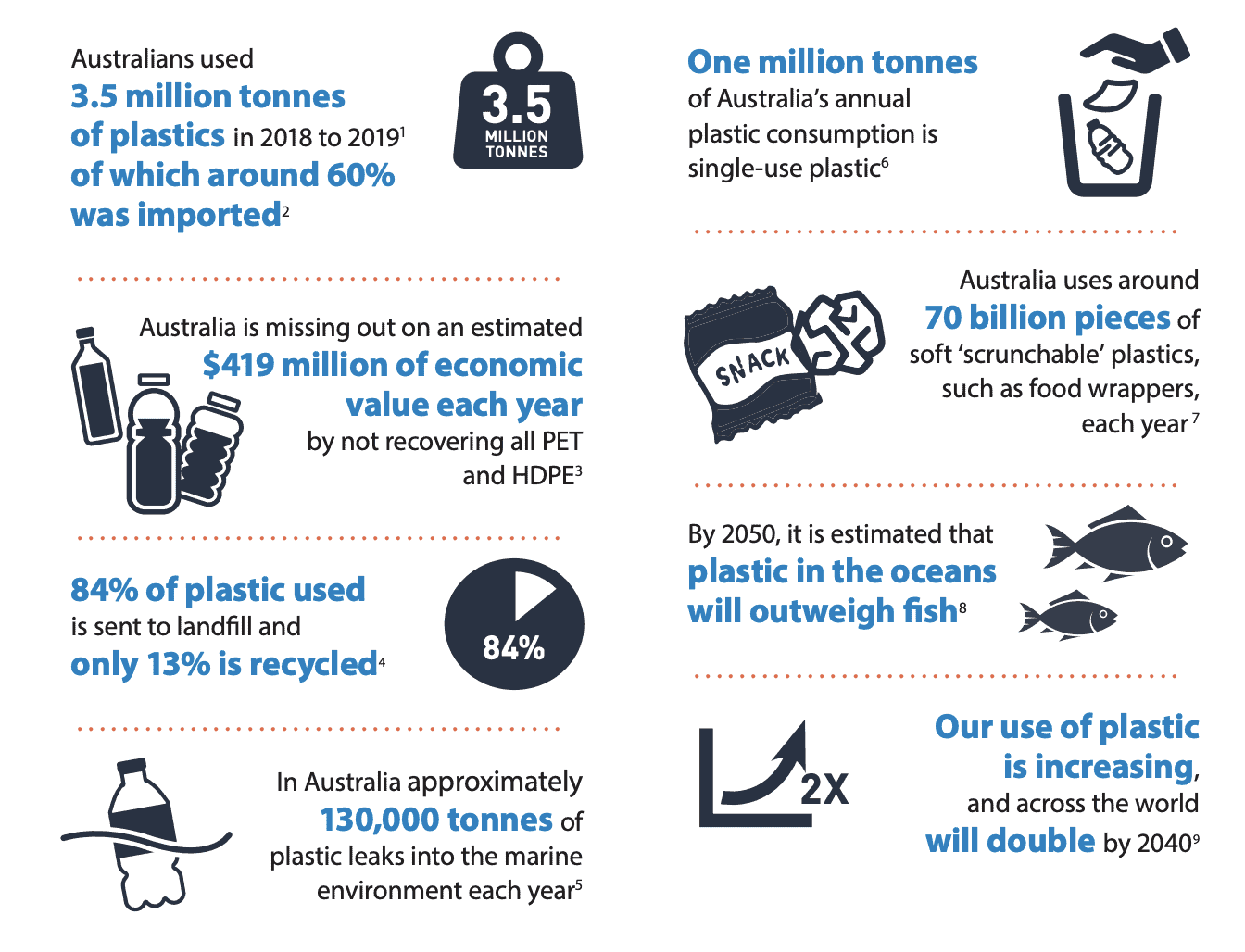National Plastics Plan – And What It Means For Business

National Plastics Plan – And What It Means For Business
July 9, 2021
Both Australia and New Zealand have been on a similar journey when it comes to the phase out of single use plastics. In March 2021 in Australia, the government launched the National Plastics Plan 2021.
This sets out the government’s goals to “reduce plastic waste and increase recycling rates”; “find alternatives to the plastics we don’t need”; and “reduce the amount of plastics impacting our environment.”
National Packaging Targets for industry:
 To achieve this, the Plan states that the government will:
To achieve this, the Plan states that the government will:
“Environment ministers identified eight ‘problematic and unnecessary’ plastic product types for industry to phase out nationally by 2025 under the National Waste Policy Action Plan.”
In April, at a meeting of federal, state, and territory environment ministers identified eight ‘problematic and unnecessary’ plastic product types for industry to phase out nationally by 2025 (or sooner in some cases) under the NWPAP.
These products are:
- 100% of packaging is reusable, recyclable or compostable
- 70% of plastic packaging goes on to be recycled or composted
- 50% average recycled content within packaging (20% for plastic packaging)
- problematic and unnecessary single-use plastic packaging phased out (target 5 of National Waste Policy Action Plan/NWPAP)
 To achieve this, the Plan states that the government will:
To achieve this, the Plan states that the government will:
- phase out the most problematic plastics
- work to make our beaches and oceans free of plastic
- bring in legislation to ensure Australia takes responsibility for its plastic waste
- invest to increase our recycling capacity
- research to find new recycling technologies and alternatives to the plastics we don’t need
- support the community to help Australian’s recycling efforts.
- lightweight plastic bags;
- plastic products misleadingly termed as ‘degradable’
- plastic straws
- plastic utensils and stirrers
- expanded polystyrene (EPS) consumer food containers (e.g. cups and clamshells)
- EPS consumer goods packaging (loose fill and moulded)
- microbeads in personal health care products.
For more information on how this could affect you with regards to packaging and other products please email procurement@narta.com.au
